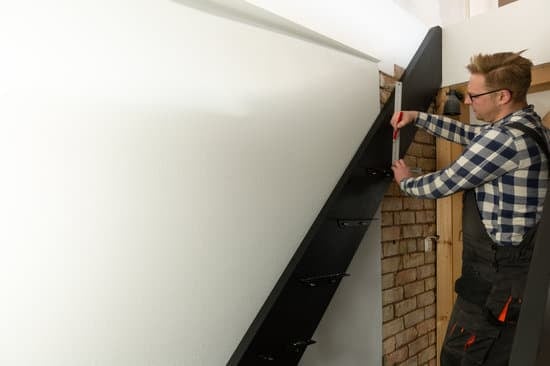Are home equity loans a good idea for home improvements? When considering ways to finance renovations or remodeling, home equity loans may be an option worth exploring. These loans utilize the equity in your property to provide funds for home improvement projects. Understanding the concept of home equity and how it can be utilized through these loans is essential for homeowners looking to enhance their properties.
Home equity refers to the value of a homeowner’s stake in their property, calculated as the difference between the property’s market value and any outstanding mortgage debts. Home equity loans allow homeowners to borrow against this value, using it as collateral to secure funding for various purposes, including home improvements.
This type of loan offers benefits such as potentially lower interest rates compared to other forms of borrowing, making it an appealing option for those looking to invest in their homes.
When considering using a home equity loan for home improvements, it’s important to weigh the pros and cons. While utilizing these funds can provide a significant source of financing for renovation projects and potentially increase the overall value of your property, there are potential risks and drawbacks that should be carefully considered before taking on this type of debt.
In the following sections, we will explore these considerations in more detail and provide insights into planning and budgeting for home improvement projects when using a home equity loan.
Understanding Home Equity
Home equity is the difference between the current market value of your home and the outstanding balance on your mortgage. It represents the portion of your property that you truly own, and it can be a valuable asset when it comes to financing home improvements. Here’s how home equity loans work in relation to home equity:
- Home equity loans: These are loans that allow you to borrow against the equity in your home. The loan amount is determined based on the value of your property and the amount of mortgage debt you still owe.
- Tap into your wealth: By using a home equity loan for home improvements, you’re essentially tapping into the wealth tied up in your property. This can be a cost-effective way to fund renovation or remodeling projects without taking out a personal loan or using high-interest credit cards.
- Fixed interest rates: Home equity loans often come with fixed interest rates, which can provide stability and predictability when it comes to repayment. This can be advantageous when compared to other types of loans with variable rates.
Understanding how home equity works and its relation to home equity loans is essential for homeowners considering renovations or upgrades. It’s important to carefully assess your financial situation and consult with a financial advisor before deciding whether a home equity loan is the right choice for your specific needs.
Pros of Using Home Equity Loans for Home Improvements
Using a home equity loan for home improvements can offer several benefits that make it an attractive option for homeowners looking to renovate or remodel their properties. This section will highlight some of the advantages of utilizing home equity loans for funding home improvement projects.
Low Interest Rates and Tax Deductibility
One of the primary advantages of using a home equity loan for home improvements is the potential for lower interest rates compared to other types of loans or credit options. Because the loan is secured by the value of your home, lenders are often willing to offer more favorable terms, making it a cost-effective financing solution. Additionally, the interest paid on a home equity loan may be tax-deductible, providing further financial benefits for homeowners.
Flexible Loan Terms and Larger Loan Amounts
Home equity loans typically offer more flexible repayment terms and larger loan amounts than other forms of credit, such as personal loans or credit cards. This can be especially beneficial for major renovation projects that require substantial funding over an extended period. With longer loan terms and higher borrowing limits, homeowners have greater flexibility in managing their cash flow while undertaking comprehensive home improvement initiatives.
Potential Increase in Property Value
By using a home equity loan to make strategic upgrades to your property, you may also be able to increase its overall value. Qualitative enhancements such as kitchen remodels, bathroom renovations, or adding additional living space can potentially raise the resale value of your home. As a result, the returns from these improvements could outweigh the costs associated with obtaining and repaying a home equity loan, effectively creating long-term financial benefits for homeowners.
Cons of Using Home Equity Loans for Home Improvements
When considering using a home equity loan for home improvements, it’s crucial to weigh the potential drawbacks and risks involved. One of the main cons of using a home equity loan for renovations is the risk of losing your home if you’re unable to make the required payments. Since your property serves as collateral for the loan, defaulting on payments could result in foreclosure.
Another disadvantage of using a home equity loan is the additional debt burden it creates. By borrowing against the value of your home, you’re essentially taking on more financial obligations that can impact your long-term financial security. Additionally, since home equity loans typically come with variable interest rates, there’s always the possibility that your monthly payments could increase over time, making it challenging to budget for the loan.
Furthermore, obtaining a home equity loan may involve considerable fees and closing costs, which can add to the overall expense of the project. Also, if you were to sell your house before paying off the home equity loan, you would need to repay the remaining balance immediately. As such, there’s a risk that you might not recoup your investment in home improvements if you decide to move before fully settling the loan.
| Drawbacks/Risks | Considerations |
|---|---|
| Potential loss of property due to foreclosure | Defaulting on payments could lead to serious consequences. |
| Increased debt burden and variable interest rates | Borrowing against your home’s value may impact long-term financial security. |
| Fees and closing costs | Additional expenses associated with obtaining a home equity loan. |
Planning for Home Improvement Projects
Home equity loans can be a useful tool for homeowners looking to finance home improvement projects. When considering using a home equity loan for renovations or remodeling, it’s important to carefully plan and budget for the project to ensure that the funds are used effectively. Here are some tips and advice on how to approach planning for home improvement projects when using a home equity loan:
- Assess Your Needs: Before taking out a home equity loan for home improvements, it’s important to assess what areas of your home need attention. Are you looking to remodel the kitchen, renovate the bathroom, or add an extra room? Understanding your specific needs will help you prioritize your budget and make informed decisions.
- Create a Detailed Budget: Once you’ve identified the areas of your home that require improvement, it’s essential to create a detailed budget outlining the costs associated with each project. Factor in material expenses, labor costs, permits, and any unexpected expenses that may arise during the renovation process.
- Hire Reputable Contractors: When using a home equity loan for home improvements, it’s crucial to work with reputable contractors who can provide quality work within your budget. Obtain multiple quotes and conduct background checks on potential contractors to ensure that they have a solid track record.
By carefully planning and budgeting for your home improvement projects when using a home equity loan, you can make the most of the funds available and achieve the desired results without overspending.
If you find yourself needing additional financial support for larger-scale renovations or aren’t comfortable leveraging your property as collateral against a loan, there are alternative financing options worth exploring.
Lastly, remember that utilizing a home equity loan comes with its own set of risks and responsibilities. It’s crucial to consider all factors and seek professional advice before making any final decisions regarding financing options for your home improvements.
Alternatives to Home Equity Loans for Home Improvements
When considering financing options for home renovation projects, it’s important to explore alternatives to home equity loans. One viable alternative is a personal loan, which can be used for various purposes, including home improvements. Personal loans typically have fixed interest rates and a set repayment term, allowing borrowers to budget more effectively. Additionally, personal loans do not require the use of a property as collateral, making them less risky than home equity loans.
Another option to consider is a home improvement loan. Some financial institutions offer specific loan products designed for funding renovations or upgrades to residential properties. These loans may come with competitive interest rates and flexible terms tailored to the needs of homeowners looking to improve their living spaces.
A popular alternative for financing home improvement projects is through a cash-out refinance. This involves refinancing an existing mortgage and taking out a larger loan amount, with the difference being received in cash. While this option allows homeowners to tap into their home’s equity without taking out a separate loan, it’s essential to consider the associated closing costs and potential impact on mortgage terms before pursuing a cash-out refinance.
| Financing Option | Key Features |
|---|---|
| Personal Loan | Fixed interest rates and no collateral required |
| Home Improvement Loan | Tailored for funding renovations with competitive rates |
| Cash-Out Refinance | Accessing home equity through mortgage refinancing |
Case Studies
The Situation
John and Sarah had been living in their home for over a decade and felt that it was time to update their outdated kitchen. After careful consideration, they decided to apply for a home equity loan to fund the renovation project.
The Experience
The process of obtaining the home equity loan was relatively straightforward for John and Sarah. They had built up a significant amount of equity in their home over the years, which made them eligible for a substantial loan amount. With the funds in hand, they were able to hire a reputable contractor and purchase high-quality materials for the kitchen remodel.
The Outcome
The kitchen renovation turned out to be a huge success for John and Sarah. Not only did it modernize their home, but it also increased the overall value of their property. They were able to create the kitchen of their dreams without having to dip into their savings or use high-interest credit cards. Overall, they felt that using a home equity loan for their home improvement project was a good decision that yielded positive results.
Case Study 2: Carlos’s Backyard Deck Expansion
The Situation
Carlos had always wanted to expand his backyard deck to create more outdoor living space for his family. He decided that using a home equity loan would be the best way to finance this project without causing any financial strain.
The Experience
Applying for the home equity loan was relatively easy for Carlos, as his mortgage lender offered competitive rates and favorable terms. He hired a professional contractor who provided him with an estimate within his budget range, allowing him to proceed with the project confidently.
The Outcome
Carlos’s backyard deck expansion exceeded his expectations, providing ample space for outdoor entertaining and relaxation. The increased square footage also added value to his property, making it an investment in addition to being aesthetically pleasing and functional. Overall, Carlos found that using a home equity loan for his home improvement needs was advantageous and significantly improved his family’s quality of life.
Conclusion
In conclusion, home equity loans can be a valuable tool for homeowners looking to fund home improvement projects. The ability to tap into the equity built up in your home can provide access to substantial funds with relatively low interest rates compared to other types of loans. Additionally, the interest paid on a home equity loan may be tax-deductible, making it an even more attractive option for financing renovations or remodeling.
However, it’s important to weigh the potential drawbacks and risks associated with using a home equity loan for home improvements. Borrowing against your home’s equity means putting your property at risk if you’re unable to make the payments, and it could potentially lead to foreclosure. It’s crucial to carefully assess your financial situation and consider whether you have a stable income and the ability to manage additional debt before pursuing a home equity loan for renovations.
Ultimately, deciding whether a home equity loan is a good idea for your home improvements will depend on your individual circumstances and financial goals. It’s important to thoroughly research and consider alternatives such as personal loans or cash-out refinancing before making a decision. Consulting with a financial advisor or mortgage specialist can also provide valuable insights into the best course of action for funding your home renovation projects while safeguarding your long-term financial well-being.
Frequently Asked Questions
Is It Wise to Use Home Equity for Home Improvements?
Using home equity for home improvements can be a wise choice, as it can potentially increase the value of your home and improve your living space. However, it’s important to carefully consider the financial implications and ensure that you have a solid plan for repaying the loan to avoid putting your home at risk.
What Is the Major Disadvantage of a Home Equity Loan?
The major disadvantage of a home equity loan is that it puts your home at risk if you are unable to make the required payments. Since the loan is secured by your property, defaulting on the loan could result in foreclosure.
It’s essential to carefully consider your financial situation and ability to repay before taking out a home equity loan.
What Should You Not Use a Home Equity Loan For?
It is not advisable to use a home equity loan for discretionary purchases or expenses that do not contribute to the value of your home or your overall financial well-being. This includes things like vacations, luxury items, or everyday expenses that can be managed through regular income rather than taking on additional debt secured by your home.

I’m thrilled to have you here as a part of the Remodeling Top community. This is where my journey as an architect and remodeling enthusiast intersects with your passion for transforming houses into dream homes.





